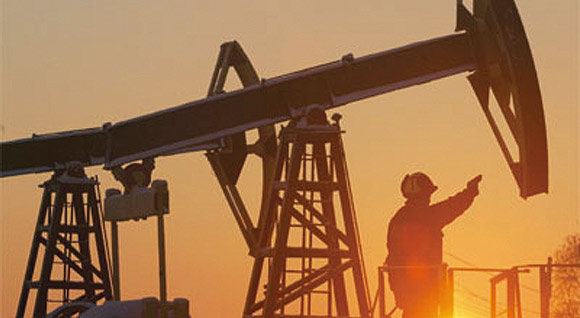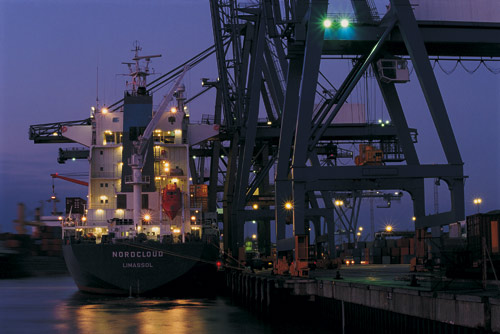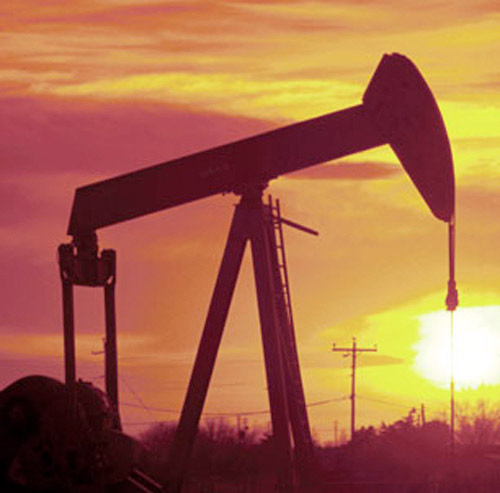Oil in Bahrain: Bahrain Oil and Gas Sector Analysis
The future for Bahrain’s oil and gas production industry also looks bright.

Oil in Bahrain: Bahrain Oil and Gas Sector Analysis
The future for Bahrain’s oil and gas production industry also looks bright.
“The Middle East plays a big role in this sector, and particularly the Arabian Gulf countries. Their reserves are very important. This region contains more than 40% of world oil and gas.
The Middle East, with Iran and Qatar, is the main gas producer in the world after Russia, and in terms of oil Saudi Arabia is no.1 oil producer in the world. Bahrain depends on oil and is still active in the field of oil discovery and land enhancement to increase the oil productivity.” Says Dr. Mohamed Bin Khalifa Al Khalifa, General Manager of Banagas.
One of the brightest spots in the economic picture of Bahrain is the vast expansion and innovation occurring in the industrial and manufacturing sector.
Oil and Gas Extraction. The future for Bahrain’s oil and gas production industry also looks bright. Tatweer Petroleum oversees a consortium of international expertise in a joint venture operating company to manage the Bahrain oil fields by introducing the latest technology. According to Dr. Ed Hanley, CEO of Tatweer Petroleum,
“our biggest technical challenge during 2010 was to halt and then reverse the decline in oil production. The Bahrain Field is a mature oil field discovered in 1932. It had experienced many years of production decline before Tatweer took over operations in December 2009. Over the past year numerous production enhancement programs were implemented and, as a result, the oil production decline of the Bahrain Field was reversed. At the same time, we successfully met all of the kingdom’s gas supply needs for one of the highest demand year on record.”
Dr. Abdul Hussain bin Ali Mirza, Minister of Energy, and head of the National Oil and Gas Authority, recently outlined additional ambitious plans both to increase industry capacity and diversification, as well as to supplement the economy and provide increasing employment opportunities. For example, he explains:
Diversification of Bahrain’s Economy
|
loading the player….
|
Bahrain is currently developing the old Awali oilfield, which is more than 78 years old, by using new enhanced oil recovery techniques. Production of Bahrain field had been declining over the years, but we’ve managed to increase it back from 29,000 to 40,000 barrels per day. We forecast that production there, in the next 5-7 years, will treble to around 100,000 barrels per day, and stabilize at that rate until 2028. This is already a major success for us and indicates a substantial increase in revenue for the government.
Since the formation of the Oil and Gas Authority in September 2005, we’ve offered all four of our offshore blocks to international companies. These companies have completed geophysical studies and seismic surveys and will be drilling new exploration wells. 
We have also signed an agreement with Occidental for deep-gas exploration; this will go through parliament shortly for ratification. Furthermore, we are currently evaluating bids for liquefied natural gas; from a shortlist of 14 companies, we have received 9 bids. This involves the installation of LNG receiving facilities in Bahrain, in order to supplement our own reserves.
In addition to this, we have a 6-billion dollar project to increase and upgrade refinery capacity, as well as a plan to replace the existing pipeline between Saudi Arabia and Bahrain. We purchase some 230,000 barrels of crude oil daily from Saudi Arabia through the pipeline in order to produce finished products; this pipeline capacity will be increased to 350 000 barrels per day. All in all, these projects mean that a total of 20 billion dollars will be invested over the next 20 years in Bahrain by international companies.
The agreements we have signed with these companies also guarantee greater employment for Bahraini nationals, substantial technology transfers, procurement contracts for local merchants and environmental protection clauses.
Benefits of the Oil and Gas Investments in Bahrain
|
loading the player….
|
Aluminum. At the same time, Aluminum Bahrain (Alba), one of the largest aluminum companies in the world, is expanding its production capacity from 880,000 to more than 1.2 million tons per year, which it hopes to reach by 2014.
Electrical Power. The future also continues to improve for Bahrain’s power and energy needs. Beginning October 2011, Bahrain will be able to produce nearly double the amount of power and energy it requires, due to the commissioning of the Al Dur Power and Water Desalinization Plant, which will also have the capacity to desalinate 48 million gallons of seawater per day.
Lubricants. Bahrain Petroleum Company (BAPCO) has long been engaged in most extractive, refining, and marketing aspects of oil production. However, it is now venturing into another aspect: manufacturing of petroleum products. In October 2011, A new USD $430 million state-of-the-art plant went on line to produce lubricants—superior sulphur-free high viscosity index grade III lube base oils—for high performance vehicles. Production is slated to reach 4000 metric tons per year. With this, the petroleum industry in Bahrain enters an entirely new market.
“The lube business is completely different from the refined product business,” explains Faisal Al Mahroos, CEO of BAPCO. “The customer is totally different and it is a business in which you have to work hand in hand with the automobile industry. We currently sell to distributors like Chevron, Total, Shell, etc., . . . They sell to the African and Asian countries. But in the lube business, we sell to a different industry . . . The oil industry is so big; there are a lot of opportunities.”
The Most Important Economic Sector in Bahrain
|
loading the player….
|
Industrial Investment. Looking to the future, Bahrain expects to attract USD $25 billion in industrial investment over the next ten years, Minister of Industry and Commerce, Hassan Abdulla Fakro, announced in August 2011. Central to this expectation is the expansion of the Bahrain Industrial Gate (BIG) project, an economic city development program on a 557,000 m2 site.
Bahrain feels confident that it will continue to attract new industries because it has created a business environment for manufacturers that is extremely competitive, offering no corporate tax, duty-free imports, duty-free exports to the GCC and other Arab markets, free trade agreements with the US and 34 other countries, 100% foreign ownership, inexpensive land, and a skilled labor force.
Sales of crude and refined petroleum, natural gas, petrochemicals (mostly fertilizer), iron, and aluminum have grown consistently despite the unrest. In the first half of 2011,the hydrocarbon sector was up 1.9% in real terms, and 43.5% in nominal terms as crude prices increased to $115/bbl.